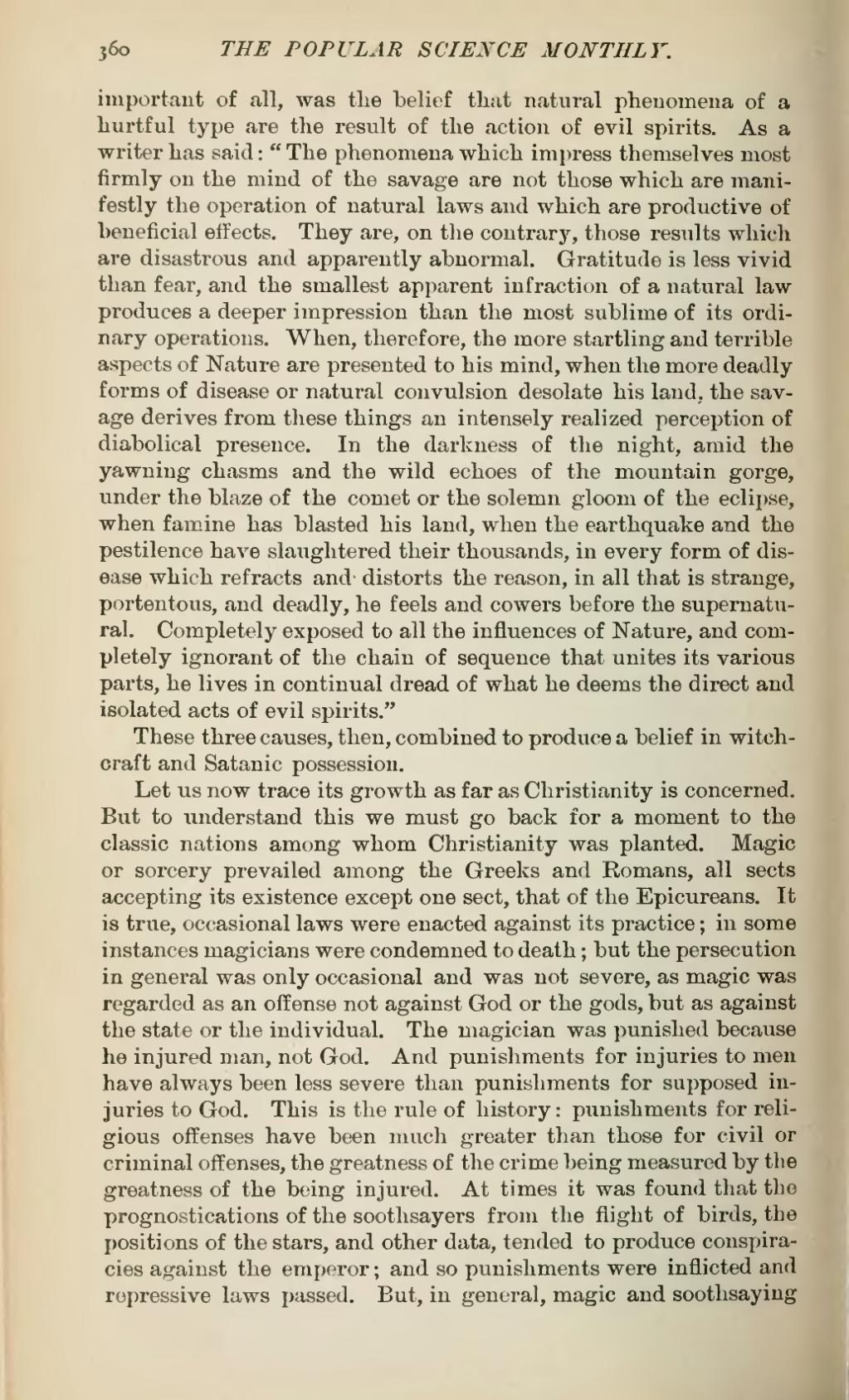important of all, was the belief that natural phenomena of a hurtful type are the result of the action of evil spirits. As a writer has said: "The phenomena which impress themselves most firmly on the mind of the savage are not those which are manifestly the operation of natural laws and which are productive of beneficial effects. They are, on the contrary, those results which are disastrous and apparently abnormal. Gratitude is less vivid than fear, and the smallest apparent infraction of a natural law produces a deeper impression than the most sublime of its ordinary operations. When, therefore, the more startling and terrible aspects of Nature are presented to his mind, when the more deadly forms of disease or natural convulsion desolate his land, the savage derives from these things an intensely realized perception of diabolical presence. In the darkness of the night, amid the yawning chasms and the wild echoes of the mountain gorge, under the blaze of the comet or the solemn gloom of the eclipse, when famine has blasted his land, when the earthquake and the pestilence have slaughtered their thousands, in every form of disease which refracts and' distorts the reason, in all that is strange, portentous, and deadly, he feels and cowers before the supernatural. Completely exposed to all the influences of Nature, and completely ignorant of the chain of sequence that unites its various parts, he lives in continual dread of what he deems the direct and isolated acts of evil spirits."
These three causes, then, combined to produce a belief in witchcraft and Satanic possession.
Let us now trace its growth as far as Christianity is concerned. But to understand this we must go back for a moment to the classic nations among whom Christianity was planted. Magic or sorcery prevailed among the Greeks and Romans, all sects accepting its existence except one sect, that of the Epicureans. It is true, occasional laws were enacted against its practice; in some instances magicians were condemned to death; but the persecution in general was only occasional and was not severe, as magic was regarded as an offense not against God or the gods, but as against the state or the individual. The magician was punished because he injured man, not God. And punishments for injuries to men have always been less severe than punishments for supposed injuries to God. This is the rule of history: punishments for religious offenses have been much greater than those for civil or criminal offenses, the greatness of the crime being measured by the greatness of the being injured. At times it was found that the prognostications of the soothsayers from the flight of birds, the positions of the stars, and other data, tended to produce conspiracies against the emperor; and so punishments were inflicted and repressive laws passed. But, in general, magic and soothsaying
